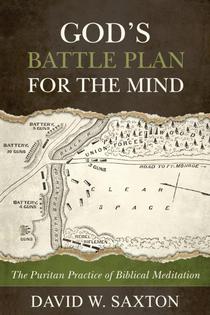Depending on your background the practice of meditation may sound thoroughly orthodox or totally New Age. We ought to think of it as utterly biblical.
No book in the Bible speaks more frequently about meditation than the Psalms. Psalm 1 says the blessed man meditates on God’s law day and night. In Psalm 63 David speaks of a deep thirsting after the Lord which leads him to meditate upon the God’s greatness during the night. Psalm 119:148 says, “My eyes are awake before the watches of the night, that I may meditate on your promise.”
Let the Puritans Guide the Way
 One group in church history that understood the usefulness of meditation was the Puritans. Joel Beeke writes, “The Puritans never tired of saying that biblical meditation involves thinking upon the Triune God and His Word. By anchoring meditation in the living Word, Jesus Christ, and God’s written Word, the Bible, the Puritans distanced themselves from the kind of bogus spirituality or mysticism that stresses contemplation at the expense of action, and flights of the imagination at the expense of biblical content.
One group in church history that understood the usefulness of meditation was the Puritans. Joel Beeke writes, “The Puritans never tired of saying that biblical meditation involves thinking upon the Triune God and His Word. By anchoring meditation in the living Word, Jesus Christ, and God’s written Word, the Bible, the Puritans distanced themselves from the kind of bogus spirituality or mysticism that stresses contemplation at the expense of action, and flights of the imagination at the expense of biblical content.
During the seventeenth century, English Puritan pastors often encouraged their congregations in the spiritual discipline of meditating on God and His Word. Today, however, much of evangelicalism is either ignorant of or turned off to the idea of meditation. In God’s Battle Plan for the Mind, pastor David Saxton seeks to convince God’s people of the absolute necessity for personal meditation and motivate them to begin this work themselves. But he has not done this alone. Rather, he has labored through numerous Puritan works in order to bring together the best of their insights on meditation. Standing on the shoulders of these giants, Saxton teaches us how to meditate on divine truth and gives valuable guidance about how to rightly pattern our thinking throughout the day. With the rich experiential theology of the Puritans, this book lays out a course for enjoying true meditation on God’s Word.
